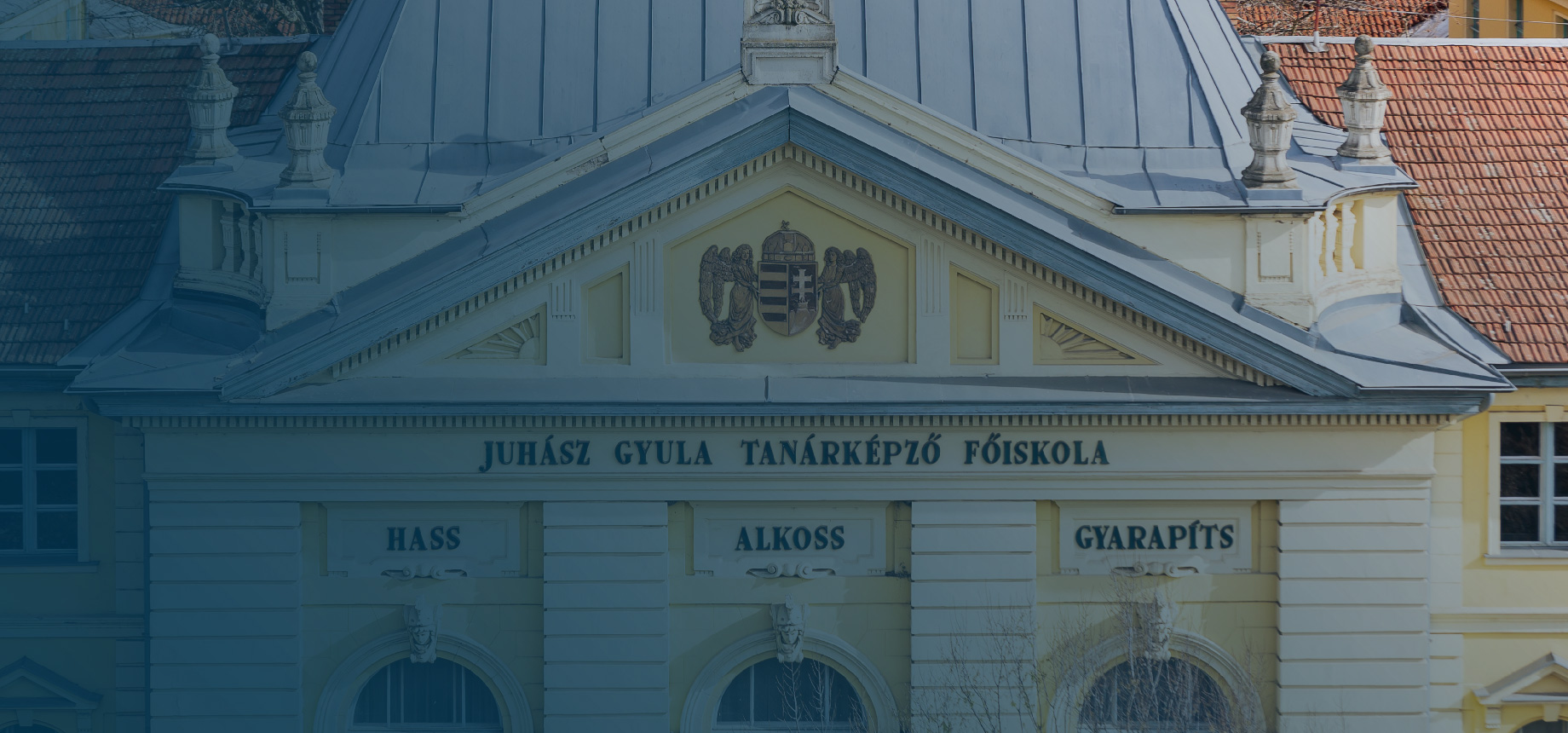Rendezvénynaptár 
-
 május 19.18:00 - 21:00
május 19.18:00 - 21:00 -
 május 22.09:30 - 18:00
május 22.09:30 - 18:00 -
 június 23. 08:00 - július 4. 08:00
június 23. 08:00 - július 4. 08:00
The Hungarian Society for Applied Philosophy was founded at the Philosophical Institution of the MTA (Hungarian Academy of Sciences) on 23rd November 1998 in Budapest. This kind of professional society was established by philosophers and researchers who largely come from the countryside (Szeged, Pécs and Kecskemét) and partly come from Budapest’s intellectual workshops.
Founding members: Tibor Szabó, Sándor Karikó, János Boros, János I. Tóth
The Society was established with the goal of creating an organized and methodological framework for– the applied philosophical research and education in Hungary. The Society is supported by the commitment, enthusiasm and the endeavor of the founding members and it is operated without any kinds of subsidy and with its own modest instruments and accomplishment. Our main objective is to decrease the deep gap which is strained between the international (in particular the Anglo-Saxon) applied philosophical life and its nationwide representation. It is a well-known that there are applied philosophical institutes and departments which have already been working and conducting research officially for decades at the more famous Western universities and at the scientific workshops, and also do research works regularly. Scientific periodicals are published and international scientific conferences are held in several countries, and one new is published in this domain every year.
Gábor Szécsi is the appointed president of the Society, Tibor Szabó acts as the managing director and Sándor Karikó is the secretary of the Society were elected by the foundation members. Ferenc L. Lendvai became the honorary president of it. Membership was initially made of 10-12 people and it is increasing continuously – if it is not in spectacular proportions – over the years. There were 26 people in it in September in 2010 and with the honorary membership and with the international there are 44 people now. The Society invites prominent foreign researchers to give professional presentations and professional conferences regularly and exchange now-how and best practices. The inaugural meeting has managed to come Professor Brenda Almond (England) who was the chief editor perhaps of the most prestigious professional journals internationally, called the Journal of Applied Philosophy at that time (1998). She gave a lecture named “Introductory Reflections on Applied Philosophy” with active discussion triggers in English language. We had a chance to listen to the latest results of the philosophical researches in a report by Zoltán Tarr (USA) on this meeting, too. Since then the Society for Applied Philosophy has hosted more researchers at the permanent headquarters, at the University of Szeged. So for example, French, Italian, Japanese, Brazilian, Russian, German, Polish, Romanian and Slovakian scientists have turned to Szeged, also Hungarian teachers and researchers have arrived here from Austria, Romania, Slovakia and Serbia. The chairmanship of the Society has already made such a decision in 1998 that they have organized international applied philosophical conferences in every two years in Hungary and its theme has been published in a book by a self-dependent and proofread way. This task has been complied with great endeavors due to financial difficulties up to this day.
If we look how the Hungarian Society for Applied Philosophy works in a professional sense, it turns out that is a kind of an experiment which is different from the so-called world of academic philosophy, from its categories, from its abstract language, from its way of approach and system-building traditions. It focuses on the examination of the all-time relevant, exciting dilemmas caused by everyday’s life which are extremely harsh from a moral aspect – while it is keeping the basic philosophical aspect and terminology – . It summarizes all of these in a clear, short studies and books. The applied philosophy is interested in the latest and current social problems and it works with sort of language and extensiveness which become interesting, understandable and “consumable” for more and more people.
The first volume of the Society was published with the title of “European citizenship. Political and moral culture” in 2001. (Second Edition: 2004). Hungary was in for joining the European Union and this book commented on this challenge and it is a little bit foretimed.
The second book was about “Chances of the Applied Philosophy” (2002) and it was tried to comply with the highly serious task of the self-definition. It was looking for the answers of what kind of place and importance behooves the applied philosophy in a broad sense in the philosophy’s world. Against the applied philosophy a certain incomprehension and disinclination – which were experienced in Hungary – were given the importance of the book. The next volume was titled as “Crisis of the Values – Changes of the Values” (2004). The authors of the studies confessed that the conformation of a new society and the economic and political difficulties do not occur without an ethical renewal. The fourth theme of the conferences was published under the title “Economy and/or Culture?” (2006, Second Edition in 2007). Between economy and culture, it is desired and necessary to create a new kind of connection that is referring and leaning to each other. This publication made for this recognition, awareness and ambition by in its way. The fifth edited volume, “Community and Instability” (2008) was focused on what to do with the communities and the missing of the community at an unstable age. We are not able to live without a community, why we feel as if it disappears from our social life? The latest work: “Risk Society and Responsibility” was readable in 2011. A serious concern is conceived in it: Can we think and can we do things – while we are living in a high-risk society – without any responsibilities of smaller-bigger groups of people? The next volume-label “Crisis and Communication” was out in 2012. We feel the unpropitious, negative impacts of the crisis and we also talk a lot about it. Yet, we have little knowledge about this phenomenon. It is certain that the crisis has no just one science and one methodology. This volume lays great importance of clarifying these questions: what is the new element in today’s economic and financial crisis and also how could we overcome this problem? The old and new roles of the communicational equipments and techniques are similarly important in the case of the examination. Do these reveal or cover up the deeper reasons of the crisis? The new volume of the Society for Applied Philosophy – which is working in parallel with the MTA (Hungarian Academy of Sciences) – was published in 2014 (“Wartime Conflicts and Morality”). This time the authors of the studies examine the socio-historical role of the war and also the problems of formations which are related to the wartime phenomenon (violent conflicts, aggression and morals or the peace). The particular actuality of the topic is given by the 100th anniversary of the outbreak of the World War I. However, it is worthy and it is wanted to thinking about and examining the general questions of the war independently of this; because of the war itself – it seems – an eternal dilemma of the history. The book draws up interdisciplinary (philosophical, ethical, historical science, political science, theological) approaches and a new message, as itself it is a niche study. The latest volume of the Society for Applied Philosophy was published in 2016 (“Youth in the Global Era”). There are few topics nowadays which would be more current and more exciting than the Youth. The old and classic problems of the relationship between the society and youth, as well as, the latest and emerging dilemmas are not only wanted but also necessary for us to rethink about and examine at the same time. The volume wants to contribute to this work, which besides the philosophical and ethical disquisitions, includes social science (psychological, youth sociological, pedagogical, communication theoretical and demographical) researches and studies. The publisher advises the reading of the book whole-heartedly for the specialists who work with the youth and for politicians and above all for the young people themselves.
2018: you hold the 10th volume of independent studies made by the Applied Philosophical Society, which is working parallel with the MTA, in your hands. This time, the researchers of the applied philosophy, ethics, pedagogy, psychology, social psychology, informatics and demography made studies on the topic of the family. Several modern professional and political discussions of the family situations and problems made publishing this book relevant. We recommend wholeheartedly studying this – because of the several approaches and the new messages- not only for the researches of the involved sciences but also for the leaders of the politics, the colleagues of the pedagogical practice and for the wider reading audience.
2020: The Society of Applied Philosophy discusses various topics in sessions organized biannually. This year, we explored topics pertaining to environmental aspects, ethics and education. The importance of these issues is self-evident – in our modern world, environmentally destructive thinking and practice coexist with the pursuit to resolve the crisis. Creating an ecological society requires an extensive system of change with implications for our values, our mentality, our consumption habits, our educational institutions as well as aspects of technology. These processes are captured in an excellent manner in the present volume of studies, wholeheartedly recommended by the editors to any reader who also takes interest in the general facets of environmental problems.